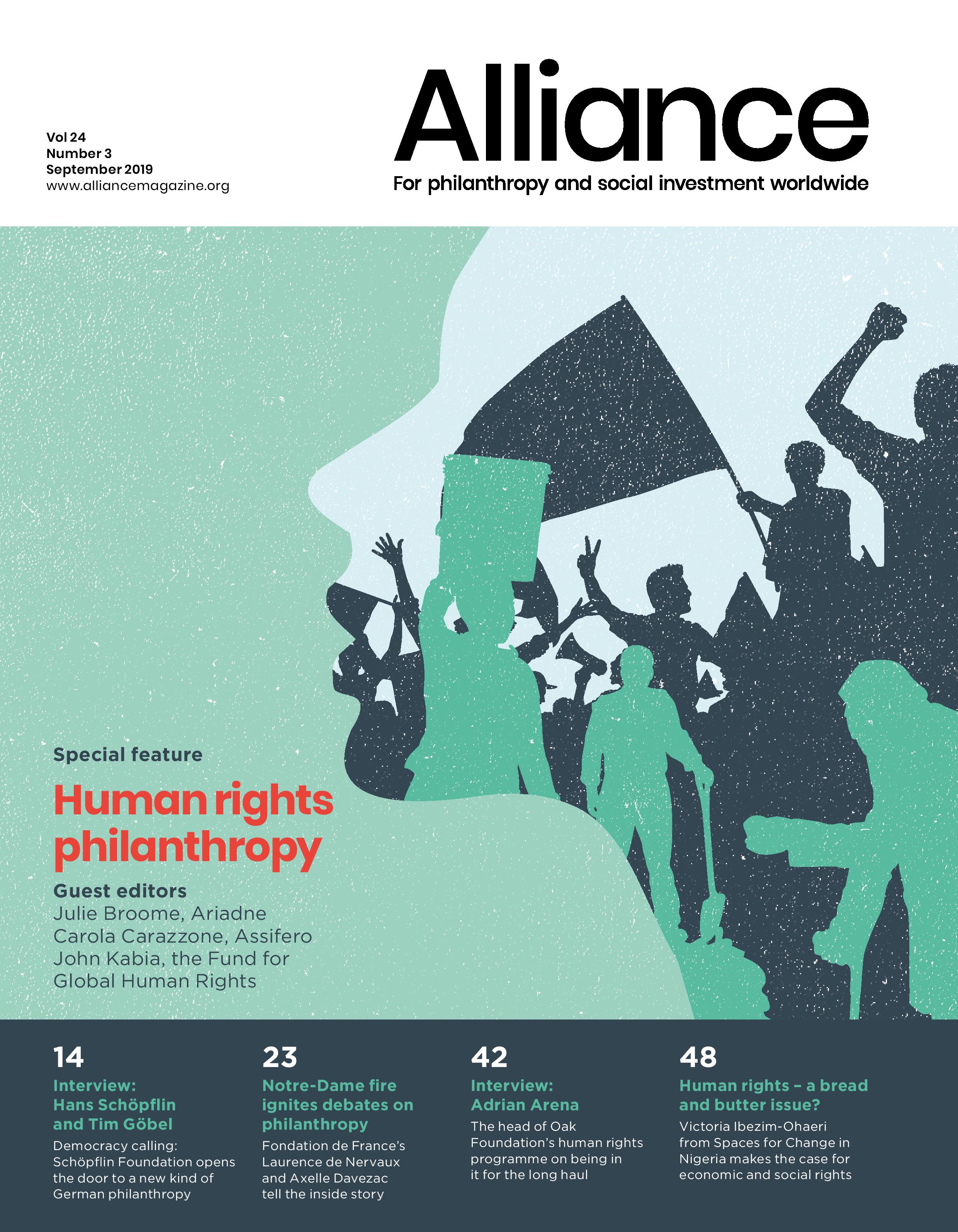The open, liberal, and democratic societies which human rights help to foster are under sustained attack. Right-wing governments and movements have harnessed popular discontent and trained fire on groups which human rights legislation was established to protect.
Regrettably, a few conservative philanthropists and foundations have sometimes provided the ammunition. Their provision of long-term core funding, convening space and support for a talent pipeline have made these efforts more strategic, impactful and successful. In the US, for example, the Supreme Court appointment of Brett Kavanaugh and influx of conservatives into the commanding heights of law and public policy is a case study of effective philanthropy.
But perhaps the vast majority of us working in philanthropy are committed to a different path.
At $2.8 billion per year, human rights funding amounts to 5 per cent of all giving. While the figure should be higher, this is considerably more than spending on climate change (2 per cent) and peace building (well under one 1 per cent).
A few liberal funders are throwing everything at stemming the tide. Some have achieved significant gains, as the Oak Foundation’s Adrian Arena notes.
Yet, there is no denying a prevailing mood of anxiety. While we are united in outrage at the latest shooting, massacre, arbitrary detention, torture, suppression of protest, environmental degradation or daily destitution of large swathes of the human population – all things which a good society founded on human rights should prevent – there are sharp differences on the direction of travel.
Is the current predicament a result of forces beyond the control and resources of foundations? Or is it equally a problem of a loss of vision, strategy and belief?
And should northern foundations listen harder to voices from the Global South who demand more emphasis on ‘bread and butter’ issues – namely economic and social rights? This is a vexed question made harder to resolve because current data does not delineate these rights as specific categories.
Despite or because of these differences, many would agree it is vital that liberal philanthropy helps the human rights ecosystem to grow so it is ready for the battles ahead. That is the central concern of our special feature and perhaps grounds for optimism.
Today, human rights funders are asking harder questions of themselves, embracing new principles and in organisations like Ariadne, the Human Rights Funders Network, and the Fund for Global Human Rights – all of whom helped make this issue possible – are providing leadership and direction. Time will tell whether liberal philanthropy manages to build a global human rights movement fit for the times.
Charles Keidan
Editor, Alliance
@charleskeidan
@alliancemag







Comments (0)